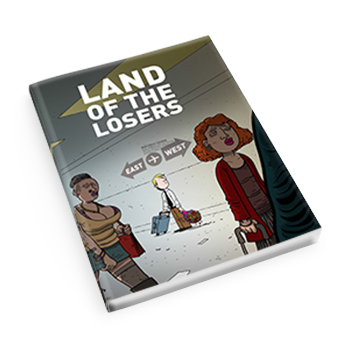My Response to Kashmira Gander
An article recently showed up in my news feed that made me raise my eyebrows. It was about MGTOW, and named me specifically as one of its originators, claiming I had called for men and women to adhere to traditional gender roles. This was news to me, as was the fact that MGTOW is apparently a movement of "men who've sworn never to sleep with women again".
Irked, and seeing as I'd been personally named in the piece, I fired off a snippy email to the author of the piece, one Kashmira Gander.
If you'd wanted to research MGTOW, you could have just gotten in touch with me, you know. I would have been happy to clear up a number of the misconceptions you seem to be operating under - the most important being the idea that MGTOW has anything to do with "never sleeping with women again".
I hadn't really expected a response, but to my surprise, Kashmira emailed me back with a series of questions about MGTOW. After some consideration, I decided to answer them in good faith, but because I have no idea if she'll revise her original article or do a followup, I have opted to post her questions and my responses here.
Hi,
I hope you’re well. Thank you for getting in touch with me. I appreciate your offer to clear up the misconceptions. Would
you be interested in answering some questions I have regarding MGTOW?
----
Why did you originally write the MGTOW manifesto? What were your aims?
The original manifesto was written about 12 years ago in response to the emerging phenomena of men dropping out of society.
It was less pronounced at that time, but definitely recognisable. MGTOW exists as a philosophical offering to those men. For
more information on the phenomena itself, I suggest the book "Men on Strike" by Dr. Helen Smith, PhD.
Regarding the authorship of the manifesto, I'd like to make clear that I did not personally participate in its original creation,
but did contribute various revisions, and am probably the most public of the very early Men Going Their Own Way. The very first
version of the manifesto was written by Ragnar (as correctly noted in your article) and "Meikyo" (a pseudonym, of course) and
then presented to a group on an early men's board for discussion. I currently administrate the board that inherited that membership.
What are the most important aspects of MGTOW that readers should know about? Are there defining principles?
MGTOW, at its core, encourages men to place their own needs, and emotional and intellectual fulfilment above the roles assigned to them by a society which has increasingly removed incentives to fulfil those roles. It also suggests that the path to doing so involves embracing one's own masculine nature (whatever an individual man determines that to be) instead of suppressing it. Beyond that, the originators of MGTOW have tried to avoid handing down a dogma to adhere to. There is no "one true path" to Going Your Own Way - indeed, that would be antithetical to the concept.
What is your view of how MGTOW has developed over the years? Has it grown into something you could not have predicted as the internet has become more widely available?
MGTOW has essentially spread out to fill the maximum available intellectual space the concept allows. That wasn't unexpected, at least to me.
Are there any "factions" of MGTOW that you no longer agree with?
I'd actually say there's never been any one group of MGTOW I found myself entirely aligned with, but that's the nature of the philosophy - MGTOW means something different to every man. If you are asking if there are any interpretations I oppose, I don't find it productive to actively seek them out and argue the point. Instead, I just keep re-iterating my own position in the hopes that others find value in it. In the near future, I hope to see more constructive engagement with the philosophy such that men can actively better their own lives.
What do you say to those who saying that MGTOWs are "sexist" or "homophobic"?
I'd say if somebody chooses to label men who identify as MGTOW as such, then rational discussion is unlikely to change their minds. These two terms now serve as little more than thought-terminating clichés, provoking an emotional reaction and shutting down rational discussion, much like shouting "witch!" or "heresy!" in the middle ages.
What do you say to those who say that both men and women are victims of the existing systems that we live under, and that we should work together to enact change?
The idea of "working together to enact change" certainly makes for an appealing sounding platitude, but it leads to the question of whether this group of would-be problem-solvers is prepared to leave other people alone to tackle the perceived problem in their own manner and by their own means. If not, what you have is effectively a group seeking power for its own sake. You also mention "change" but fail to specify what manner of change. It's a word that plays right into the politician's fallacy:
- We must do something
- This is something
- Therefore, we must do this
Please add anything else you feel is important.
Only that I hope you approach my responses in good faith, and represent them honestly to others. :)
----
A day or so later I received the following response:
Hi,
Thanks very much for taking the time to answer my questions.
Best wishes,
Kashmira
-----------------------------------------------------------------------------------------------
"The most effective way to destroy people is to deny and obliterate their own understanding of their history." -- George Orwell
Return to Niceguy's Land of the Losers Page



